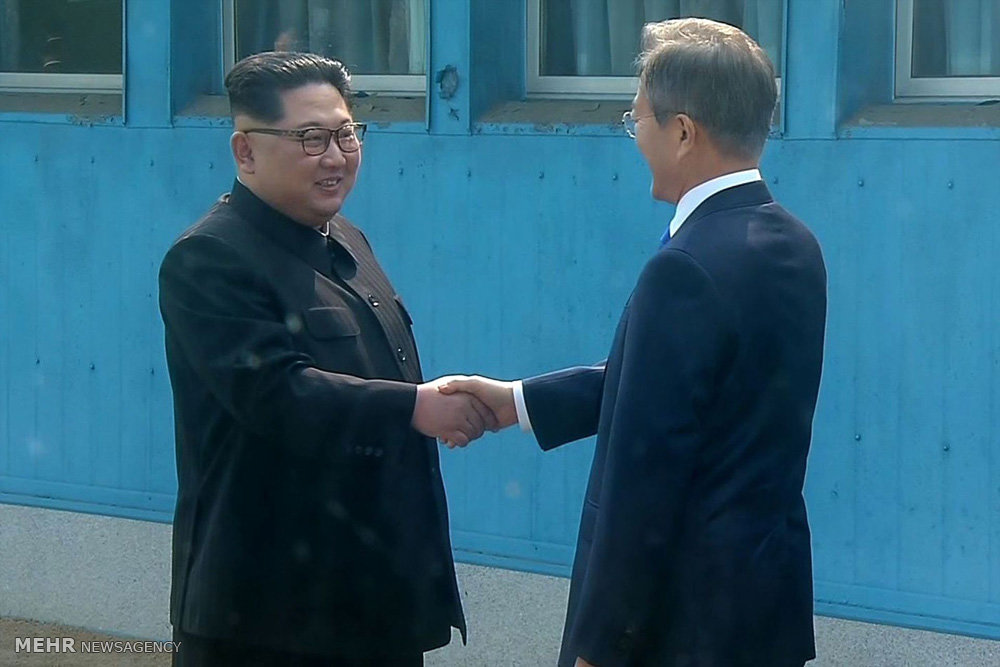Three key steps in Kim Jong-un’s diplomacy

Not long time ago, Kim Jong-un, the supreme leader of Democratic People’s Republic of Korea (DPRK), had been dubbed as the “little rocket man”, and DPRK was called the “rogue state” by the U.S. President Trump alongside some media in the West.
Yet, now Kim suddenly becomes one of quite popular strong leaders in the world, though deep suspicion still exists. Accordingly, it is necessary to discuss the rationales behind Kim’s turnarounds from his “die-hard” pursuit for nuclear weapon to his recent vow for denuclearization in the Korean Peninsula. Three statements are clearly seen as the essential departures which are actually the key to understanding of Kim’s diplomacy.
First is Kim Jong-un’s New Year address. Spoken on Pyongyang TV in January 1st 2018, he held out a rare olive branch to his sibling but hostile South Korea, offering talks over sending a delegation to the Winter Olympics in February. Kim was unusually conciliatory in declaring his wish “for peaceful resolution with our southern border.” Yet, Kim was as tough as usual to warm Washington that North Korea’s nuclear ambitions were now complete and the launch button was “always on the desk in my office.”Although he stressed the nuclear weapons of DPRK can’t be negotiated away under any conditions, Kim at once added that the nuclear program was only for self-defense and serves to deter the U.S. from starting a military adventure.”
True, Kim surprised the world when he said “North and South (Koreas) must work together to alleviate the tensions and work together as a people of the same heritage to find peace and stability.”When two Koreas marched under a united Korean flag into the opening ceremony of the Winter Olympic, IOC President Thomas Bach delightedly declared “the Games can send a powerful message of peace to the world.”
Of course, we can’t expect that Kim made a turnaround overnight in his foreign policy and security concerns. The peaceful result of the Winter Olympic did make contributions to the peace and harmony of the Korean Peninsula and East Asia. Second is more significant as during March 25-28, Kim made an informal visit to Beijing where he met Chinese President Xi Jinping, followed by a series of secret talks. According to China’s news release, Xi and Kim reached the consensus that the traditional friendship between the two sides has been established personally and cultivated meticulously by the elder generations of leaders of both parties. Kim admitted that it is a strategic choice of the DPRK to continue and sincerely develop friendship with China under the new situation, and it will remain unchanged under any circumstances.
In a response to Xi’s call for the final denuclearization of the Peninsula, Kim stated that it was the DPRK’s consistent stand to be committed to the realization of denuclearization on the Peninsula, which was in accordance with the will of his grandfather Kim Il-sung and late his father Kim Jong-il. In light of this, the DPRK is determined to transform the DPRK-ROK relations into a relationship of reconciliation and cooperation and hold summit between the heads of the two sides. He even promises that the DPRK will have dialogue with the United States and hold a summit between the heads of the two countries. If the ROK and the US respond to the DPRK’s efforts with goodwill, and create an atmosphere of peace and stability while taking periodical and synchronous measures for the realization of peace, the issue of denuclearization of the Korean Peninsula can be resolved. In short, the DPRK would like to enhance strategic dialogues with China during the process with a view to jointly safeguarding the peace and stability on the Peninsula.
Third and equally important is Kim’s address on April 20that the 3rd Plenary Session of the 7th Central Committee of the WPK. He declared that the DPRK has decided to stop nuclear and missile tests, make all-out efforts to develop economy and improve people’s livelihood. China immediately welcomes the decision made by the DPRK and insists on achieving the denuclearization of the Peninsula as the established policy of Chinese government. In the meantime, China once again stressed that all relevant parties can join hands to take concrete actions and make their own efforts to achieve the lasting peace and common development of this region. It meant China will continue with its positive and impartial role to this end.
No doubt, Kim’s address on April 20 can be perceived as the historic turning point in DPRK’s version of economic reform and openness modeled on China’s inspiration. He went on calling for DPRK actively to have exchanges and regular dialogues with neighboring countries and international community as well. Although it is too early to say that Kim-Trump summit would lead to any specific results, we can expect that the two leaders of the DPRK and the United States would be able to seize the time and present their positive and constructive meetings to the world. In terms of the classical diplomacy, both the DPRK and the United States have demonstrated their keen interest in having negotiations with each other. As long as they persuade each other with necessary compromises, the positive end would come out.
Source: https://moderndiplomacy.eu/
